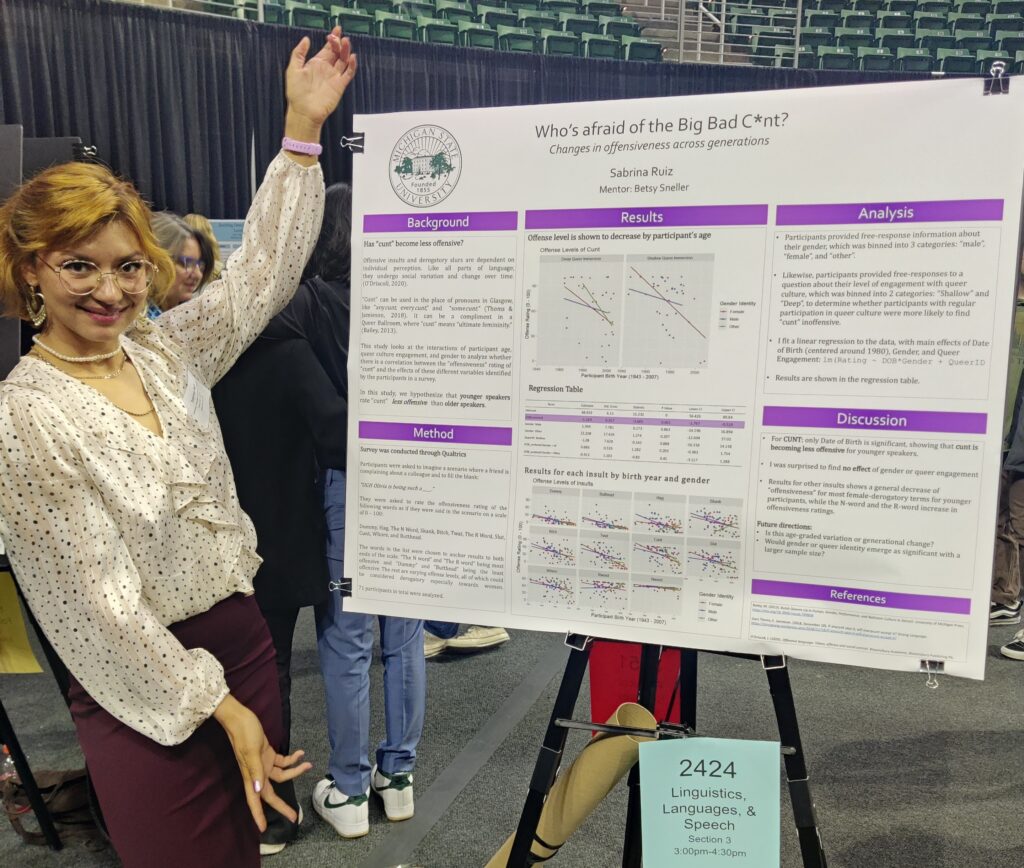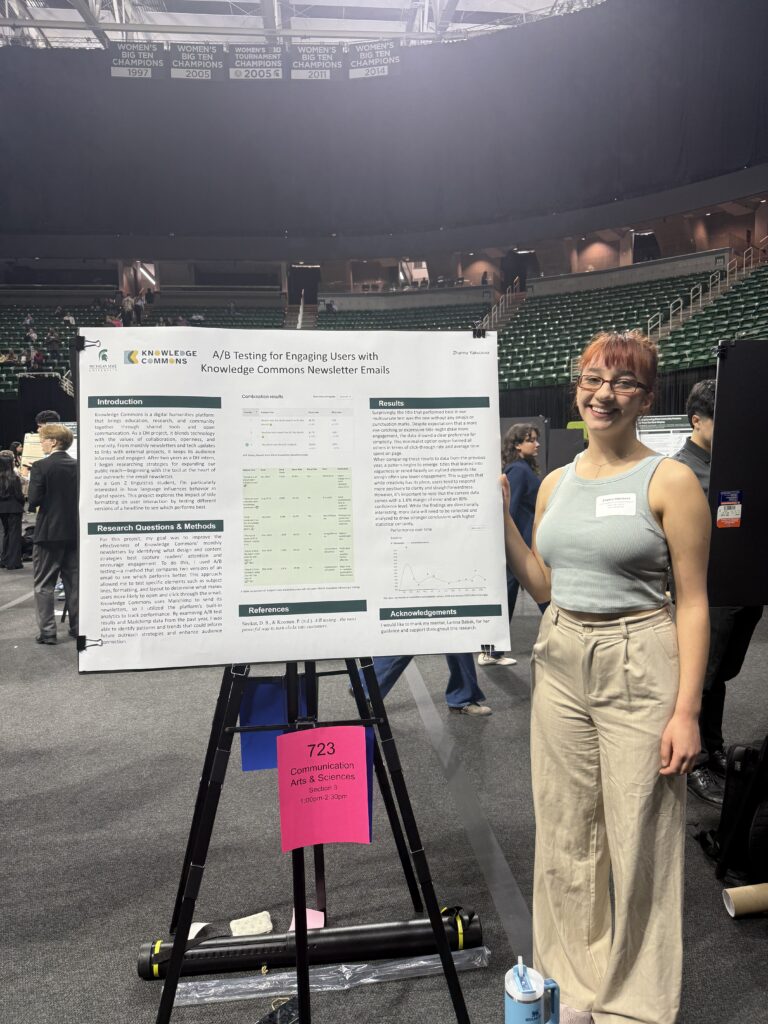In the last two years, we’ve welcomed two waves of new sociolinguistics-oriented graduate students into the Sociolinguistics Lab.
In fall 2023, Emily Duggan and Kate Speak began their Masters degrees in Linguistics. Kate has left to pursue a career in secondary education, while Emily is now in her second year and is preparing a masters thesis proposal on the socioindexical meanings of two identity labels, lesbian and dyke. Emily has also participated in the MI Diaries project, most recently as a regular chair of our weekly all-team meetings. Last spring, Emily was a key member of our cross-lab reading group on game theoretic semantics and sociolinguistic meaning.
Also in Fall 2023 we welcomed PhD Linguistics students Jessica Shepherd and Annan Kirk. Jessica completed a Bachelor’s degree in Linguistics at Brigham Young University. She is really interested in phonological variation between speakers and she’s currently working on a project that investigates sound change in Michigan English. Annan has an MA degree in Linguistics from Southern Illinois University, Carbondale. She’s interested in language and gender and in grammatical variation. She’s currently looking at adjectival intensifiers in Michigan English. Both Jessica and Annan have been graduate research assistants on the MI Diaries project.
Fall 2024 brought two new students to the lab: Hamlin Teng and Connor Bechler. Hamlin holds a masters degree in Sociology from Zhejiang University in China. He’s interested in statistical modeling of sociolinguistic variation and change. Currently Hamlin is conducting some research for the MI Diaries project on the demographics and submission patterns of its participants. Connor has a Masters degree in Linguistics from the University of Kentucky. Connor is interested in the phonetics/phonology interface, language change, and developing computational tools for under-resourced languages. He’s currently the Sociolinguistics Lab RA and a research assistant on the MI Diaries project.




